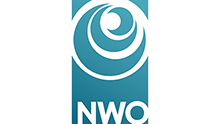Two NWO grants awarded to GELIFES professors Robbert Havekes and Jan Komdeur

Two innovative research projects of GELIFES professors Robbert Havekes and Jan Komdeur were awarded an ENW-M1 grant from the Dutch Research Council (NWO).
Prof. Havekes will receive a EUR 400.000 grant to support his studies on restoring access to hidden memories in the aged and Alzheimer brain. This award will allow Robbert’s lab to further examine what molecular mechanisms underlie the difficulty in recalling information. Forgetting is a natural process that takes place daily in everyone’s life. However, forgetting can become troublesome, as happens with aging, and even pathological, as in brain disorders like Alzheimer’s disease (AD). Recent work has suggested that forgetting may be a result of the inability to recall memories rather than information loss. Within this research line, the Havekes lab aims at contributing to prevent amnesia by restoring access to memories thought-to-be-lost due to aging and the early stages of AD.
Does sociality facilitate adaptation to extreme and unpredictable changes in the environment? Prof. Jan Komdeur argues that group-living and cooperative breeding are strategies which enable animals to adapt to poor and unpredictable environmental conditions, and thus persist where otherwise they couldn’t. Komdeur’s lab, also funded with an amount of EUR 400.000, will investigate this hypothesis in a natural avian population, determining if sociality increases in response to severe conditions, whether this increases seasonal reproductive output, and also decreases variance in that output across seasons.
| Last modified: | 16 January 2025 3.45 p.m. |
More news
-
16 December 2024
Jouke de Vries: ‘The University will have to be flexible’
2024 was a festive year for the University of Groningen. Jouke de Vries, the chair of the Executive Board, looks back.
-
10 June 2024
Swarming around a skyscraper
Every two weeks, UG Makers puts the spotlight on a researcher who has created something tangible, ranging from homemade measuring equipment for academic research to small or larger products that can change our daily lives. That is how UG...
